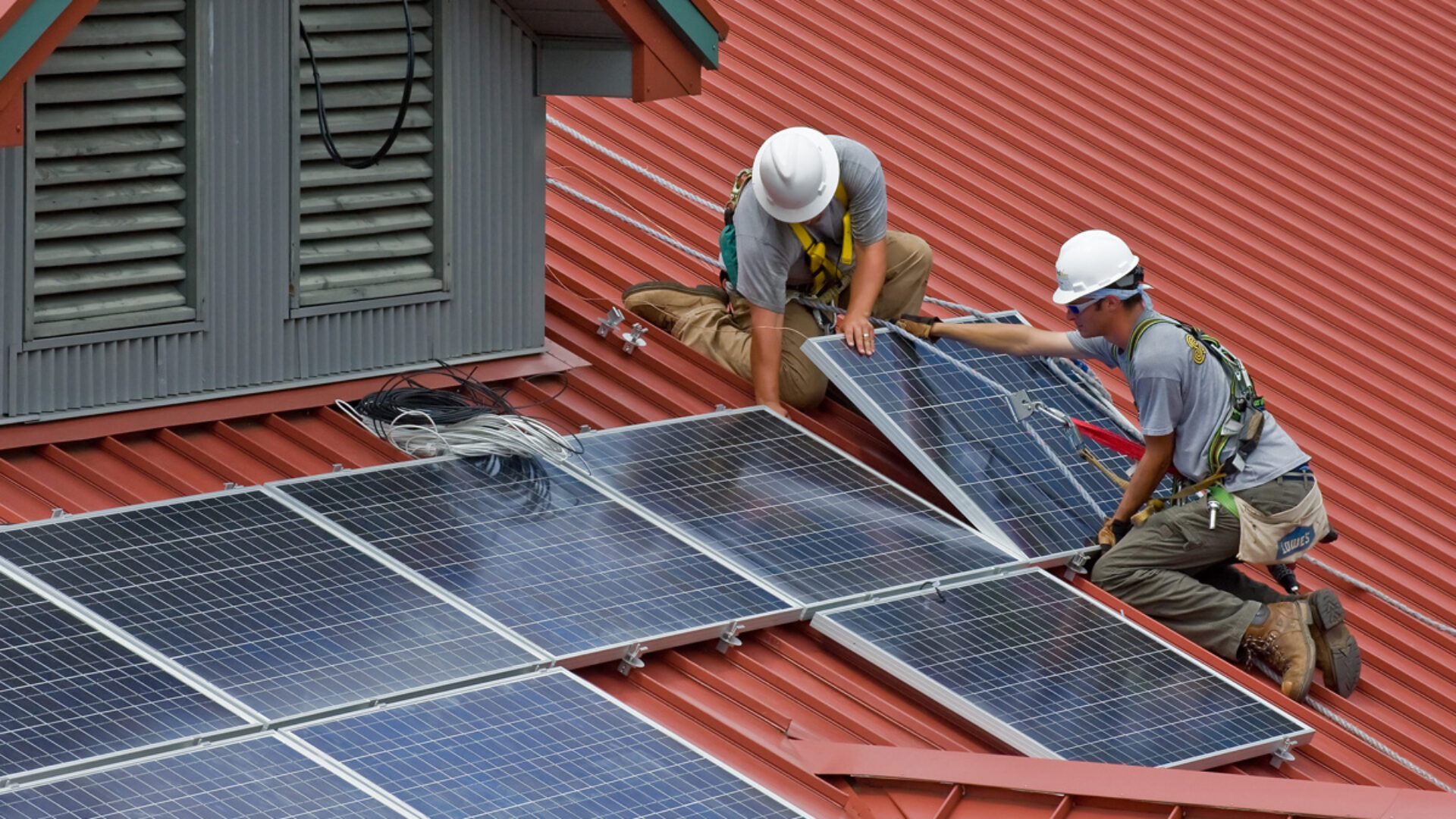Pilot projects show potential for community solar in Indiana
- Energy democracy & policy

Hoosiers are suffering from a double crisis: sky-high utility bills, and some of the worst air quality in the country. According to the Hoosier Environmental Council, Indiana currently ranks #45 in air quality, partially due to its heavy industry and fossil fuel production. And on average, Hoosiers pay twice as much of their income on energy bills than the national average.
Solar energy can help families fight inflation and pollution at the same time. Energy generation helps you save money on your electric bill, and solar panels produce clean energy that benefits the health of communities.
But what if you’re a renter, or a homeowner with a shaded roof? Rooftop solar might be out of reach for many families, but luckily, community solar can provide a solution. With community solar, customers can subscribe to, or in some cases own, a share of the energy generated by off-site solar panels. Customers then receive a credit on their electric bill for the electricity generated by their portion of the community solar system.
In Indiana, there is currently no legislation that creates a clear path forward for developing community solar projects. But that hasn’t stopped local communities from getting creative. I talked to members of two initiatives that are innovating quasi-community solar projects, despite current legal barriers. In the meantime, they hope Indiana’s legislature will pass a law to expand community solar to everyone.
Columbus, Indiana
To learn more about the Doug Otto Community Solar Project, I met with Mike Mullett, Vice President and Columbus Solar for All Demonstration Project Steering Committee Member, as well as a member of the Energy Matters Community Coalition, Inc.
The Doug Otto Community Solar Project is a proposed plan where the arrays would be owned by the Doug Otto United Way Center, a community center that provides various social services to low-income communities. Due to legal regulations, at least 50% of the energy generated would need to be sold to Duke Energy, their local utility company, with the rest going to the Doug Otto Center, which would offset their Duke Energy bill.
Mullet says, “As we understand, other people cannot provide energy other than the regulated utilities. With consent from Duke and approval from [the Indiana Utility Regulatory Commission], the Doug Otto subscription to community solar would be lawful.”
Through good faith negotiations and a letter of commitment from Duke Energy, it is proposed that the proceeds from the energy sold to Duke Energy would be used to provide energy to 300-400 low-income households. The proceeds would be deposited into an escrow account at Duke to credit the bills of subscribing low-income customers, which would be an unconventional approach but entirely within Duke’s authority.
This project would be one of the first community solar arrays in Indiana. Community solar legislation can pave the way for more investment in communities across the state.
Fort Wayne, Indiana
Fort Wayne, Indiana, is also working towards community solar from a municipal standpoint. I spoke with Kerry Korpela about how their upcoming project utilizing community solar will benefit Fort Wayne’s citizens. Korpela is the program manager for the City of Fort Wayne’s Climate Action and Adaptation Plan, as well as the Fort Wayne City Utilities Envision Initiative.
Fort Wayne is now in recovery from an economic downturn. To bring relief to those who have been most affected and relieve energy burdens, they are turning to community solar.
The project started with the idea of having Indiana Michigan Power serve as an administrative authority, delivering the credits to people’s bills. The solar arrays would be on city-owned property and operate as a traditional subscription-based community solar program.
Korpela highlights the necessity of affordable energy in Fort Wayne. Many families can’t afford electricity, so they turn on gas stoves and ovens to warm their spaces. Community solar not only fuels homes, but the savings can also fuel families. As Korpela says, “$100 can be the difference between buying your kids food or not.”
Korpela has seen firsthand the excitement that communities have for this endeavor. “I’ve been working with the East Central Neighborhood in Fort Wayne and have seen the way people are excited for a project like this. It gives them hope.”
Savings from community solar can rebuild cities, support families, and create a cleaner future for the next generation.
Indiana Needs Community Solar!
The two pilot projects are not “true” community solar projects because the utility company still owns and distributes the energy from the solar panels. To open the doors for community solar across Indiana, the legislature must pass a community solar law.
Over twenty other states have enacted legislation for community solar, including neighboring states like Illinois and Minnesota as well as traditionally conservative states like Alaska. It’s time for Indiana to join them. Indiana is falling behind and risks becoming less competitive in clean energy, one of the largest growing industries.
Diana Eddowes, Director of Community Access at Solar United Neighbors, believes that community solar is a great way to begin reversing the health impacts of Indiana’s reliance on fossil fuels.
Eddowes sums it up perfectly: “I think community solar is a no-brainer. It benefits everyone.”
Hoosiers across the state are working toward enabling community solar. Check out these actions provided by Hoosiers for Community Solar and Solar United Neighbors to get involved and tell your legislators to join the fight for accessible, affordable energy!
Get the latest on solar straight to your inbox.
Fight for your solar rights.
Everyone has the right to go solar. Spread the sunshine nationwide and in your local community by taking action, joining events, and more.